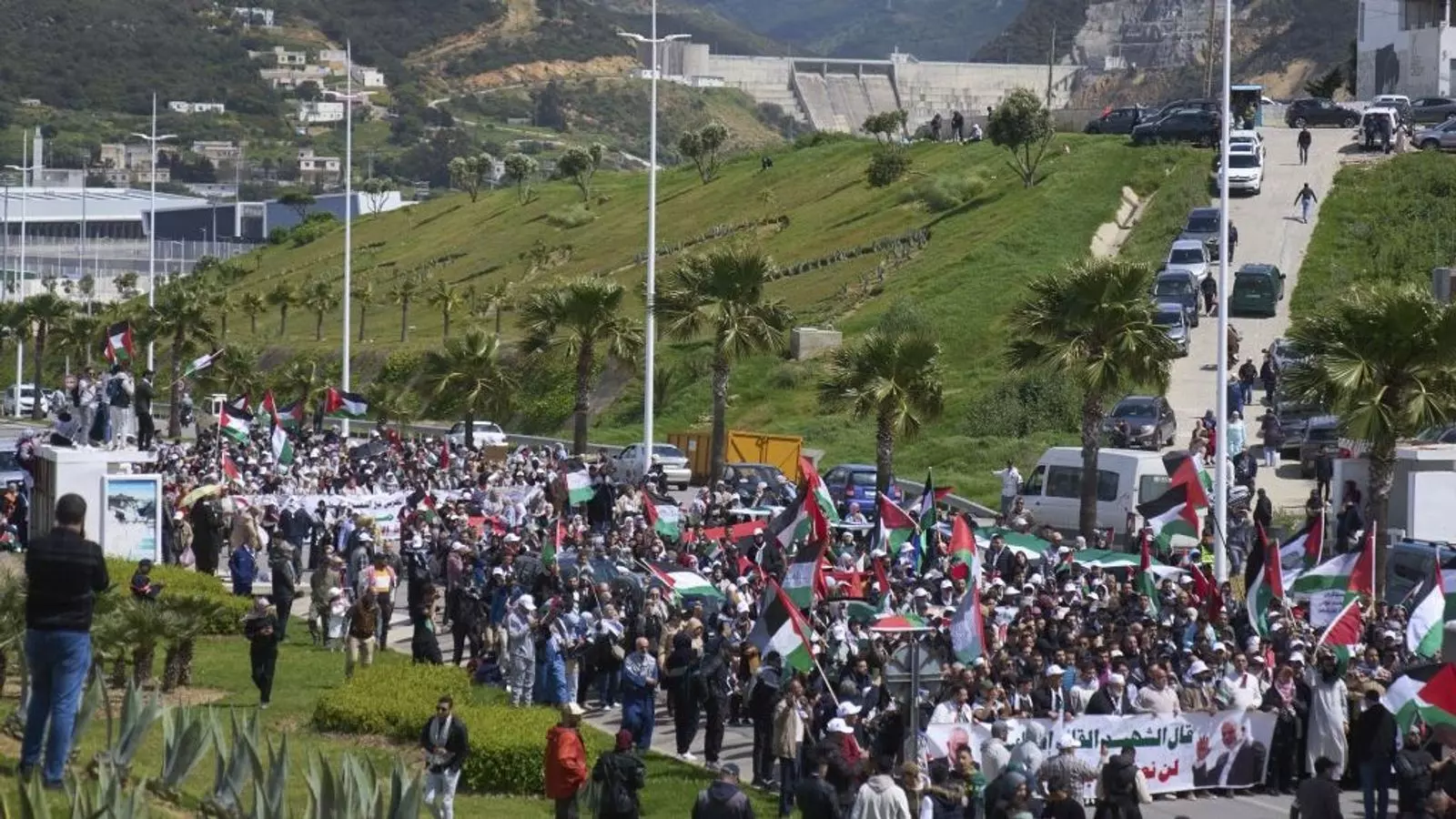Moroccan Dock Workers Stand Against Military Cargo: A Tale of Solidarity and Resistance
Moroccan dock workers refuse to load military cargo for Israel, showcasing global solidarity against complicity in war.;

In a powerful demonstration of solidarity, dock workers in Morocco have taken a bold stand against the shipping of military cargo linked to the ongoing conflict in Gaza. Thousands of protesters have rallied behind these workers, refusing to load Maersk container ships carrying parts for F-35 fighter jets used by Israel. This act of defiance highlights the growing resistance to complicity in global military actions and the role of ordinary workers in opposing war.
The refusal to service Maersk ships comes amidst heightened anti-genocide protests across Morocco. As the Nexoe Maersk, flagged in Hong Kong, approached the port, dock workers demonstrated their commitment to justice by boycotting the loading of military supplies intended for Israel. This cargo, reported to include essential components for F-35 jets, has been implicated in the ongoing violence against Palestinians. Such actions reflect a broader trend where workers are increasingly aware of their role in global supply chains and are willing to act against perceived injustices.
On April 20, 2023, workers at Tangier Port made headlines when 18 out of 20 crane operators refused to operate machinery for the Nexoe Maersk. Reports indicated that the protest extended to Casablanca, where dockworkers were backed by thousands of demonstrators chanting slogans against the military cargo. The Union of Port Workers in Morocco had previously called for this boycott, underscoring the importance of collective action in the face of political and ethical dilemmas. Such large-scale protests not only signify discontent but also serve as a beacon of hope for those advocating for peace and justice.
The role of global shipping corporations in facilitating military operations is under scrutiny. A.P. Moller-Maersk, the Danish shipping giant, plays a significant part in this dynamic due to its contracts with the U.S. military. Critics argue that these contracts enable the ongoing war against Palestine, as components for F-35s are regularly shipped to Israel. Maersk's attempts to distance itself from the implications of its cargo have been met with skepticism. Internal updates and testimonies suggest that dock workers are resolutely refusing to contribute to the logistics of war, thereby standing firm in their moral convictions.
Heading
Content Area
This situation is not unique to Morocco. Around the world, dockworkers and other labor unions have taken similar stances against military shipments. In Spain, Greece, and India, workers have blocked shipments bound for Israel, showcasing a growing trend of international solidarity among laborers. The refusal to aid military logistics is not merely a local issue; it reflects a global awakening to the ethical responsibilities of workers within the supply chain.
The protests in Morocco serve as a crucial reminder of the power of labor movements in advocating for peace and justice. As the conflict continues, the call for global solidarity becomes increasingly urgent. Workers around the world are urged to recognize their role in the machinery of war and to take action against complicity in violence. By standing together, they can make a significant impact on the narrative and the reality of military logistics. The actions of Moroccan dock workers exemplify how collective action can challenge the status quo and advocate for a more just world.

